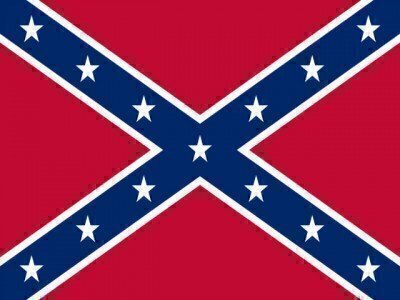The controversy over the public display of a Confederate flag at South Carolina’s capitol has given new life to some old arguments about state-level protections given to Confederate flag-related items.
 For instance, five states, including South Carolina, have laws on the books that make it illegal to burn a Confederate flag, or undertake other assaults on its dignity. These laws also apply to the American flag and the state flags within in these five states.
For instance, five states, including South Carolina, have laws on the books that make it illegal to burn a Confederate flag, or undertake other assaults on its dignity. These laws also apply to the American flag and the state flags within in these five states.
On the surface, these state laws would seem to conflict with the U.S. Supreme Court’s 5-4 decision in Texas v. Johnson, the controversial 1989 case that upheld burning the American flag as an act of protected free speech under the First Amendment.
"If there is a bedrock principle underlying the First Amendment, it is that the government may not prohibit the expression of an idea simply because society finds the idea itself offensive or disagreeable," said Justice William Brennan in his majority opinion. "We have not recognized an exception to this principle even where our flag has been involved."
Justice Anthony Kennedy wrote a concurring opinion in 1989 and explained the Court's difficult choice to permit American flag burning.
“The hard fact is that sometimes we must make decisions we do not like. We make them because they are right, right in the sense that the law and the Constitution, as we see them, compel the result,” Kennedy said. “And so great is our commitment to the process that, except in the rare case, we do not pause to express distaste for the result, perhaps for fear of undermining a valued principle that dictates the decision. This is one of those rare cases.”
In reaction to the Johnson decision, which only applied to the state of Texas, Congress passed an anti-flag burning law called the Flag Protection Act of 1989. But in 1990, the Court struck down that law as unconstitutional in United States v. Eichman
Despite the Supreme Court decisions, most states still have anti-flag burning laws on their books. And Florida, Georgia, Louisiana, Mississippi and South Carolina have specific statutes that extend to Confederate flags and symbols.
A look at the five statutes shows each has provisions to bar efforts to “mutilate, deface, defile, or abuse contemptuously” the flag, emblem, standard, color or ensign of the Confederate States of America. (In addition to flag burning, the placement of advertising, merchandizing and other marks on Confederate, state or American flags is prohibited.)
In Mississippi, it is illegal to “cast contempt, either by word or act, upon any such flag, standard, color or ensign,” while in South Carolina it is unlawful to “jeer at, trample upon or cast contempt, either by word or act, upon any such flag, standard, color or ensign.” Punishments in the five states are related to misdemeanors accompanied by fines and possible imprisonment.
That said, until someone is arrested in one of the five states for Confederate flag burning, the state laws wouldn’t seemingly come into play. Stories in recent months from those states related to Confederate flag-burning incidents don’t indicate arrests accompanied the incidents.
And then there is the question of which flag is really the official Confederate battle flag. The Florida and George laws pertain to “the flag or emblem of the Confederate States,” while Louisiana’s law relates to “any duly authorized flag, shield, standard, color or ensign.” Mississippi and South Carolina broaden the definition to include anything “purporting” to be the Confederate flag.
The flag at the South Carolina capitol, which is portrayed in popular culture as the Confederate battle flag, is similar to the flag flown by General Robert E. Lee’s Army of Northern Virginia. Elements of that flag were incorporated into the second and third national flags for the Confederacy, but it was never adopted as the official Confederate flag during the war.







